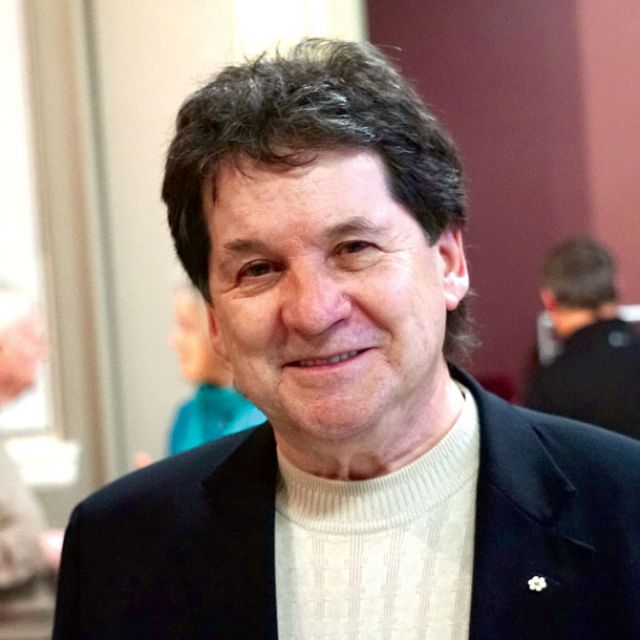And the outlook for the Roman Catholic Church is better than most other religions, said the University of Lethbridge sociologist.
Bibby, who has been studying religious adherence in Canada since 1975, told a gathering at Saint Paul University that he no longer believes secularization is a one-way trend in Canada.
Instead, Bibby sees religious believers who attend services regularly — their numbers have remained relatively steady even in Quebec — and studies that show 65 per cent of Canadians claim religion is important to them.
Even though there is a rising number who claim no religious affiliation, “there are large numbers of people in the middle,” Bibby said. “They haven’t shut the door on religion.”
He called them “religiously undecided” and “receptive to greater involvement if they can find it worthwhile.”
In Canada the numbers of teens who are receptive is 51 per cent; in Quebec 41 per cent, he said.
Bibby blamed demographic shifts, not contentious debates over issues such as gay clergy or marriage, for the precipitous decline in mainline Protestant denominations like the United and Anglican Churches. It once was that churches could count on a steady stream of immigrants from Britain to replace dying members, but that source of immigration has tapered off.
But the news for the Roman Catholic Church is much better, he said. With 1.2 billion Catholics in the world, living in countries with a much higher level of religious attendance than Canada or the United States, immigration will remain a boon to the Catholic Church in Canada. Also, religious groups who encourage families to have children will have a pool of adherents to draw from.
Among Canadian-born Catholics, those who have wandered away from the faith “haven’t wandered very far,” Bibby said, noting they are not easily receptive to switching religious affiliation.
Most Catholics “actually wander back on their own every once in a while. They show up in amazing regularity,” he said.
“The staying power of Catholicism is quite remarkable. Even when Roman Catholics think they have lost people they still have them.”
Canadians, led by the Boomer Generation (born between 1945- 1965), have undergone an attitude shift when it comes to religion, Bibby said. Where once they attended weekly service out of obligation, they now seek gratification. They will go if they feel “their minds are uplifted, otherwise they won’t bother,” he said.
Religious practice has been impacted by a trend to place higher value on freedom of expression, with people “insisting they have a voice” and saying those in authority “have to earn our respect.” For example, Catholics largely disagree with the statement “it’s important to obey Church teachings even if I don’t understand them,” he said.
When teens are asked whether they agree or disagree with the notion “that right or wrong is a personal opinion” roughly two out of three agree, he said.
The rise of women in the paid work force to 60 per cent from 30 per cent in 1960 has also reduced religious attendance and the amount of time families have for socializing and volunteerism, he said. Churches were oblivious to the big shift of women into the work force, he said. They should have “had great nurseries for the kids when they come to church.”

